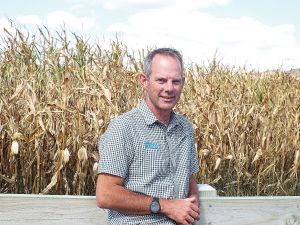Upper North Island Storms: Limited impact on dairy farms
For the most part, dairy farmers in the Waikato, Bay of Plenty, Tairawhiti and the Manawatu appear to have not been too badly affected by recent storms across the upper North Island.
 AgFirst Waikato managing director James Allen says profit has soared due to the high payout and in spite of some cost increases.
AgFirst Waikato managing director James Allen says profit has soared due to the high payout and in spite of some cost increases.
Farm profitability should be healthy for 2021-22 and for the current season – but farmers will need to keep a close eye on input costs, says an AgFirst report for Waikato and Bay of Plenty dairy farms.
Despite the rapid rise in costs, the higher payouts result in healthy cash surpluses for the season just past, and for the coming year.
“While this is positive, the rise in the breakeven payout to over $8/kgMS does not augur well if the payout starts to drop,” says the report.
“The full impact of these increased costs are expected to manifest over the 2022/23 season, along with an expectation of further increases, particularly in interest rates.”
The report is based on a financial survey of dairy farms across the Waikato and Bay of Plenty regions and modelling work carried out by AgFirst through June 2022.
AgFirst Waikato managing director James Allen told Dairy News there has been some excellent profitability due to the high payout and that is in spite of some cost increases.
“But certainly looking to the year ahead there are more (cost) increases to come.
“The warning on the horizon is to make sure the costs are controlled as much as they can be,” Allen says.
“We can’t control a lot of the costs but we can control how efficient we are. That means being as efficient as we can in our feed costs and our fertiliser costs and making sure we are getting best bang for buck.
“The other thing that is starting to creep in is interest costs. We are starting to see quite a lift in interest rates as well. The full effect of that won’t be felt until this year.
“So that’s another warning.
“Another is your taxation planning. We have seen a few farmers caught out by some quite hefty tax payments in the last few months. If farmers haven’t really caught up with their accountants to understand their tax requirements it would be quite timely to do so.”
The AgFirst report says currently farmers are budgeting for a 2% increase (over the 2021/22 level) in milksolids production for 2022/23. The 2021/22 payout is $9.30/kgMS and the expected 2022/23 payout is $9.50/kgMS.
“The positive profitability has seen/will see increased expenditure on debt reduction, capital expenditure, and personal drawings,” the report says.
“Farmer morale is variable. While pleased with the good payout and profitability, there are a range of concerns around costs, interest rates, labour, and environmental issues, that represent dark clouds on the horizon.”
While the 2021/22 season started well, a prolonged dry spell over summer and early autumn saw the Waikato declared in drought and overall milk production drop 4%.
Heading into the 2022/23 season, most farms are only in an “average” position; pasture covers are 1,650 – 1,800 kgDM/ha whereas the target is 2,000 kgDM/ha, cow condition is below target levels, and supplementary feed inventories are low.
The Waikato/Bay of Plenty Dairy Model represents about 3,900 dairy farms across the Waikato and Bay of Plenty regions model and is created from information drawn from 25 surveyed dairy farms and a cross section of agribusiness representatives.
The model is a seasonal supply farm based on an average property of 133ha, milking 368 cows and producing around 135,000 - 145,000 kgMS in a normal season.
Modelling for a typical Waikato/Bay of Plenty farm shows net cash income increases by 21% for 2021/22 compared with 2020/21, largely driven by milksolids returns.
The 4% reduction in milksolids is more than offset by the lift in the payout, with the 2021/22 payout improving by 18% compared with 2020/21.
Farm working expenses increased in 2021/22 by 16% compared with 2020/21.
The South Island Dairy Event has announced Jessica Findlay as the recipient of the BrightSIDE Scholarship Programme, recognising her commitment to furthering her education and future career in the New Zealand dairy industry.
New Zealand and Chile have signed a new arrangement designed to boost agricultural cooperation and drive sector success.
New DairyNZ research will help farmers mitigate the impacts of heat stress on herds in high-risk regions of the country.
Budou are being picked now in Bridge Pā, the most intense and exciting time of the year for the Greencollar team – and the harvest of the finest eating grapes is weeks earlier than expected.
The Real Estate Institute of New Zealand (REINZ) has released its latest rural property report, providing a detailed view of New Zealand’s rural real estate market for the 12 months ending December 2025.
Rural retailer Farmlands has released it's latest round of half-year results, labeling it as evidence that its five-year strategy is delivering on financial performance and better value for members.
OPINION: Expect the Indian free trade deal to feature strongly in the election campaign.
OPINION: One of the world's largest ice cream makers, Nestlé, is going cold on the viability of making the dessert.